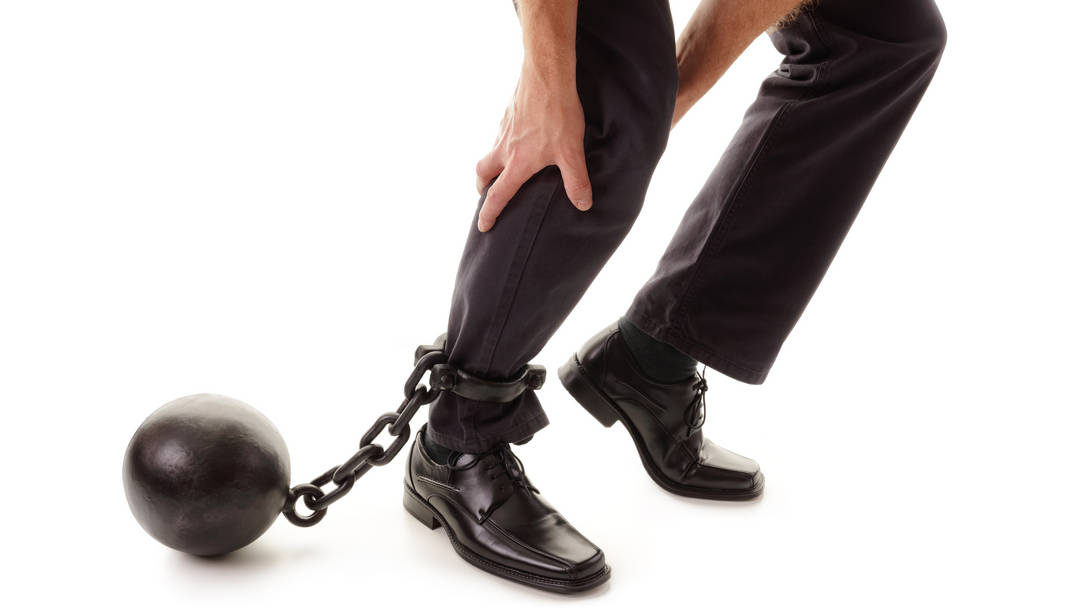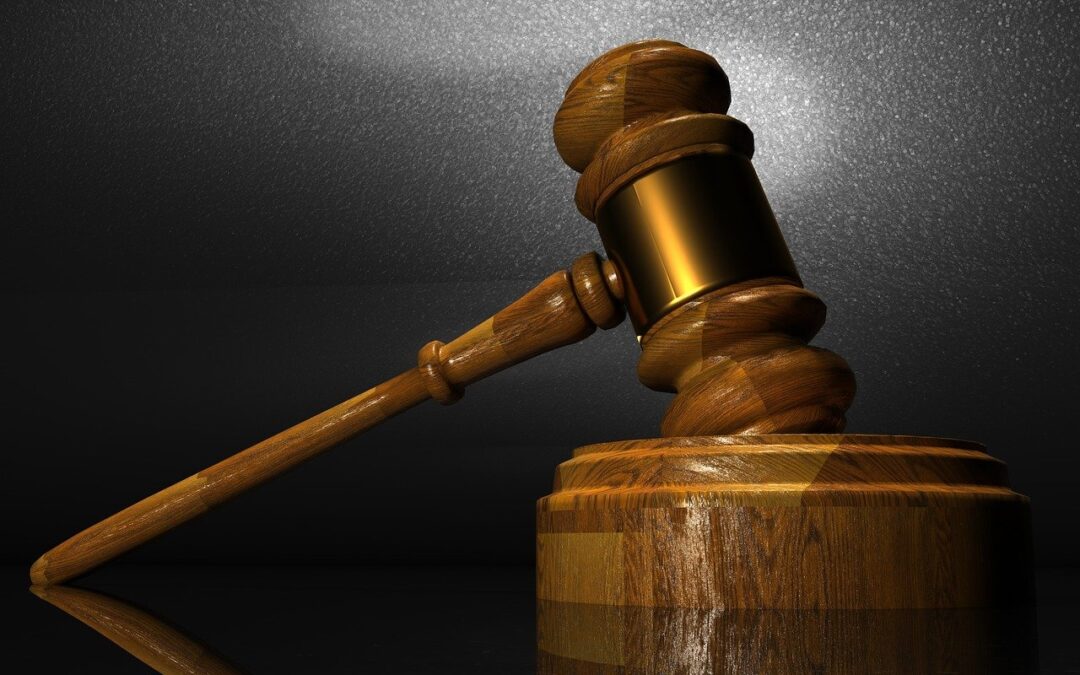


Is it possible to use medical marijuana while on probation?
Is it ?
For the last 13 years of the Michigan Medical Marijuana Act (“MMMA”), patients on probation have asked that simple question. Relying on the simple plain language in the act that protects a medical marijuana patient from denial of any right or privilege (probation), as well as protection from penalty in ANY MANNER, as long as they followed the medical marijuana laws and rules.
Until now, it was up to each individual courtroom to decide the patients fate. The judges, prosecutors, probation officers and drug testing labs decided which medicines a probationer could use. In some cities and townships medical marijuana was allowed, but in others, patients had to fight. Some were successful, most were banned from using their doctor recommended medicine, and would likely face serious penalties and jail time if they broke those probation rules. Thousands of patients were sent back to jail because of testing “dirty.”
As president of the Michigan Medical Marijuana Association, Michael Komorn has fought for every patient on this issue in courtrooms across the state, by trying to secure their rights under the law to not be penalized for the legal use of medical marijuana. Komorn has fought for patients on bond to be able to use medical marijuana as a bond condition. With over 300,000 registered medical marijuana patients in Michigan, thousands of patients had their bond revoked due to choosing their medicine, as recommended by a doctor.
The justice system has crushed medical marijuana caregivers and patients for more than a decade on many issues. Usually with the excuse that “marijuana is illegal” or “a trial court has considerable discretion to set conditions of probation.”
Four years ago, this was the excuse in People v Magyari that the Michigan Court of Appeals used to deny a registered medical marijuana patient from administering medical marijuana for his condition. The Court stated in its opinion:
“Defendant has failed to offer any persuasive argument for the proposition that the MMMA prohibits a trial court from ever imposing a probationary condition barring the use of medical marijuana. The challenged probationary condition is reasonably related to the goal of defendant’s rehabilitation, including preventing future criminality, as well as protecting the public. Affirmed.”
Until February 2021, when People v Thue was published, that was the law of the land.
Today, attorneys Michael Komorn and Alyssa McCormick, of Komorn Law, provided the “persuasive argument” for medical marijuana on probation. That persuasive argument boiled down to the plain language of the law that so many courts have ignored and disparaged for the last 13 years. The plain language of the law in section 4, for the right to use medical marijuana, has not changed, so why did it take this long to have a correct ruling? No one knows.
The Court ruled:
“The Michigan Probation Act permits a court to impose multiple conditions of probation on a defendant under MCL 771.3. However, provisions of the probation act that are inconsistent with the MMMA do not apply to the medical use of marijuana.”
The Court went on to state:
“We also conclude that the revocation of probation upon the MMMA-compliant use of marijuana constitutes a “penalty” under MCL 333.26424(a) of the MMMA.”
Most times, courts will not rule on both of these issues. Due to the “first out” rule, the appeals courts usually decline to rule on further issues such as penalties.
One of the more incredible rulings in this opinion was on the issue of mootness. Because of the details of the case, Komorns client’s probation ended before the appeal could be heard. The court in its wisdom understood that this issue was of such public importance and issued an opinion even though the client no longer had standing.
The only other medical marijuana case Komorn can remember that issued a ruling where the defendant did not have standing was when the Michigan Court of Appeals issued an opinion against a patient for taking his plants out of his enclosed locked facility for spraying with pesticide. He lacked standing because he died before the court could issue its opinion. The court issued its opinion anyway, post-mortem. Issues of standing and mootness are the FIRST requirements of having a court review an issue.
Having a court rule favorably while overlooking standing and mootness is quite extraordinary. One can only chalk it up to experience and strategy, or as some call it, “lawyer magic.”
Some judges have called the MMMA the worst law they’ve ever seen.
Courts have ruled against patients in all kinds of cases because they personally feel that marijuana is bad.
The Michigan Court of Appeals in Magyari even claimed that marijuana was addictive! “Further, the trial court found that defendant would simply be replacing one addictive drug—alcohol, for another—marijuana.”
The courts have been wildly inconsistent with opinions, rulings, reversals and remands on the medical marijuana law.
Some predictions are that this ruling will also apply to patients on bond or parolees. While this might be true, we have seen most recently that the Michigan Supreme Court has upended even the simplest of understandings of the plain language of the MMMA, specifically in the case of Deruiter v Byron Township. In Deruiter, the Court unanimously said that a township could craft an ordinance that added requirements to the MMMA. This flies in the face of earlier rulings from the MSC where the justices said in oral arguments that you cannot add surplusage or make any words nugatory within the act.
Said another way, because of the ruling in Deruiter, what would stop a locality from drafting an ordinance with additional requirements to administer medical marijuana while on probation?
“As in Qualls and Miller, the local ordinance goes further in its regulation but not in a way that is counter to the MMMA’s conditional allowance on the medical use of marijuana. We therefore hold that the MMMA does not nullify a municipality’s inherent authority to regulate land use under the Michigan Zoning Enabling Act (MZEA), MCL 125.3101 et seq.,13 so long as the municipality does not prohibit or penalize all medical marijuana cultivation, like the city of Wyoming’s zoning ordinance did in Ter Beek II, and so long as the municipality does not impose regulations that are “unreasonable and inconsistent with regulations established by state law.” Qualls, 434 Mich at 363.”
It is also suggested that because the MMMA and the 2018 Michigan Regulation and Taxation of Marijuana (MRTMA) use similar language that this ruling could be used to have the same protective effects of all adults 21 and over to use marijuana while on probation.
Section 4 of the MMMA, MCL 333.26424, states:
Sec. 4. (a) A qualifying patient … is not subject to … penalty in any manner, or denied any right or privilege… for the medical use of marihuana in accordance with this act
While Section 5 of the MRTMA, MCL 333.27955, states:
Sec. 5.
1. Notwithstanding any other law or provision of this act … the following acts by a person 21 years of age or older are … not grounds for … penalty in any manner … and are not grounds to deny any other right or privilege …
Both laws have sections stating that all other laws do not apply to them. The intent of both laws is the same– to give people the right to have medical marijuana and legal marijuana. Under no other circumstances can an individual be denied access to marijuana, as long as they follow the MMMA and or MRTMA.
HANDS OFF OUR MARIJUANA ALREADY. THE PEOPLE HAVE SPOKEN.
Strangely, there is an unattributed quote, possibly from one of the judges in the case which addresses this in the opinion:
“We note, however, that the MMMA is inapplicable to the recreational use of marijuana, and thus, a trial court may still impose probation conditions related to the recreational use of marijuana and revoke probation for such recreational use, as well as for marijuana use in violation of the MMMA.”
While the opinion did not directly address the MRTMA (notwithstanding the weird uncited and dicta quotation at the bottom of page 6-7 of the slip opinion), it seems that the statutory language in MCL 333.27955(1) and MCL 333.27954(5) would compel a similar outcome with respect to adult-use marijuana.
The Thue opinion relies on the preemption language in MCL 333.26427(e) and finds that revocation of probation is a “penalty” in violation of Section 4 of the MMMA.
Similarly, Section 5(1) of the MRTMA provides, “Notwithstanding any other law or provision of this act, and except as otherwise provided in section 4 of this act, the following acts by a person 21 years of age or older are not unlawful, are not an offense, are not grounds for seizing or forfeiting property, are not grounds for arrest, prosecution, or penalty in any manner, are not grounds for search or inspection, and are not grounds to deny any other right or privilege . . .”
While Section 4(5) of the MRTMA provides, “All other laws inconsistent with this act do not apply to conduct that is permitted by this act.”
It would seem that the takeaway of Thue opinion is that revocation of probation is a “penalty” and the MRTMA prohibits the imposition of a penalty for conduct that is permitted by the MRTMA, it would stand to logically follow that the MRTMA similarly protects those who are age 21+ from having their probation revoked for engaging in conduct that is protected by the MRTMA.
An issue to be fought in court in the future.
Don’t face the system alone – Hire The Best
If you want your right to use marijuana while on bond or probation
Call Komorn Law PLLC 248-357-2550
Read The Opinion Here
Read More About The Victory Here
NEWS ARTICLES ABOUT IT
- Free Press – Michigan appeals court OKs medical marijuana for those on probation
- MLive – Read The MLive News Article
- The Oakland Press – Court rejects restriction on use of medical marijuana
Komorn Law Social Media
Recent Posts
- If you have an LLC you must comply or face fines and possible prison

- Compounding Charges Laws in Michigan





- Harris unveils new proposals targeting black men with cannabis legalization





- Cleary becomes latest US law firm to add non-equity partners





- What is the Difference Between a Magistrate and a Judge





- Add on charges for your permanent record – Using a computer





Tag Cloud
2021 BMMR cannabis CBD corruption. prosecutors dispensary Driving DUI forfeiture gun rights hemp komornlaw lara law enforcement abuse laws Legalization marijuana Medical Marijuana Michigan michigan laws michigan news MMFLA MRA news police politics science usa news us supreme court Your Rights
DISCLAIMER
This post may contain re-posted content, opinions, comments, ads, third party posts, outdated information, posts from disgruntled persons, posts from those with agendas and general internet BS. Therefore…Before you believe anything on the internet regarding anything – do your research on Official Government and State Sites, Call the Michigan State Police, Check the State Attorney General Website and Consult an Attorney – Use Your Brain.


Biden DOJ takes IRS side in marijuana 280E tax argument
The Biden DOJ took the side of the IRS in the marijuana 280E tax arguement that state-legal cannabis businesses CAN be investigated by the IRS for probable violations of Section 280E of the tax code.
It is believed to be one of the first times the U.S. Department of Justice under the new administration has filed an opinion in a marijuana court case.
The Feb 2021 release of the filing was made by DOJ attorneys, led by acting Solicitor General Elizabeth Prelogar.
“That is precisely the federal government’s position and has been for many years,” Thorburn said – an attorney representing a medical marijuana dispensary. “We were hoping that the Biden administration would soften that stance. “It, unfortunately, has not and is doubling down.”
Section 280E of the IRS tax code prohibits marijuana businesses from taking traditional business deductions because the plant is listed as a Schedule 1 drug under the federal Controlled Substances Act.
Industry leaders are optimistic that federal marijuana law reform could come in the next two years because of the Democratic – control of the U.S. House, U.S. Senate and presidency.
QUESTION PRESENTED
For income tax purposes, the Internal Revenue Code disallows any deduction or credit for business expenses incurred in carrying on a trade or business that “consists of trafficking in controlled substances” in violation of federal or state law. 26 U.S.C. 280E. Marijuana is a controlled substance, and federal law prohibits trafficking it. 21 U.S.C. 812(c), 841(a)(1). Petitioners own and operate a marijuana dispensary in Colorado, which has decriminalized marijuana in some respects under state law. The question presented is as follows:
Whether the court of appeals correctly affirmed the district court’s decision to enforce several third-party summonses issued by the Internal Revenue Service to a Colorado state agency as part of an investigation into the accuracy of petitioners’ federal income tax returns, including whether petitioners claimed any business expense deductions disallowed by Section 280E.
Komorn Law Social Media
Recent Posts
- If you have an LLC you must comply or face fines and possible prison





- Compounding Charges Laws in Michigan





- Harris unveils new proposals targeting black men with cannabis legalization





- Cleary becomes latest US law firm to add non-equity partners





- What is the Difference Between a Magistrate and a Judge





- Add on charges for your permanent record – Using a computer





Tag Cloud
2021 BMMR cannabis CBD corruption. prosecutors dispensary Driving DUI forfeiture gun rights hemp komornlaw lara law enforcement abuse laws Legalization marijuana Medical Marijuana Michigan michigan laws michigan news MMFLA MRA news police politics science usa news us supreme court Your Rights
DISCLAIMER
This post may contain re-posted content, opinions, comments, ads, third party posts, outdated information, posts from disgruntled persons, posts from those with agendas and general internet BS. Therefore…Before you believe anything on the internet regarding anything – do your research on Official Government and State Sites, Call the Michigan State Police, Check the State Attorney General Website and Consult an Attorney – Use Your Brain.


Michigan’s expungement laws will change in April
On Oct. 12, Whitmer signed House Bills 4980-4985 and 5120 into law to expand and simplify the state’s criminal record expungement process. The bills will take effect April, 11, 2021.
The new law will expand the number and types of convictions that qualify for expungement.
Michigan is also working to establish a system to automatically expunge eligible felonies and misdemeanors after certain periods of time, but that still has some time before becoming active.
What’s expungement?
Expungement seals criminal convictions from the general public, including employers and landlords. Once a record is expunged, people applying for employment, housing and financial aid can truthfully state that the arrest and conviction never occurred.
Of course… Law enforcement, courts and agencies such as the Michigan Department of Corrections retain access to expunged records.
Changes to expungement by application include:
- Eligible offenses: Expanding eligibility to up to three felonies and an unlimited number of misdemeanors, with certain conditions on the types of offenses that qualify. No more than two assaultive crimes can be expunged, and no more than one felony conviction for the same offense if the offense is punishable by more than 10 years imprisonment.
- Waiting period: Adjusting the waiting period to apply after a person’s monitoring by the justice system ends (i.e. sentencing, probation, release from incarceration, parole — whichever occurred last) if they remain conviction-free. The waiting period will be three years for misdemeanors, five years for serious misdemeanors or one felony, and seven years for multiple felonies.
- Traffic offenses: Expanding eligibility to most traffic offenses. This excludes convictions for driving while intoxicated, traffic offenses that cause injury or death, and Commercial Driver License violations.
- Marijuana misdemeanors: Creating a streamlined process to apply for expungement of misdemeanor marijuana possession and use that would not have been considered crimes after recreational marijuana was legalized in Michigan. Judges must grant expungements if prosecutors don’t object.
- Multiple offenses in one day: One bad day…Treating multiple felonies or misdemeanors arising from the same 24-hour period as one conviction for the purposes of expungement. None of the offenses can be assaultive, involve the use or possession of a dangerous weapon, or carry a maximum penalty of 10 or more years in prison.
Not eligible for expungement
Felonies that carry a maximum punishment of life in prison, attempt to commit a felony for which the maximum punishment is life, felony domestic violence (if the person had a previous domestic violence misdemeanor), child abuse, most criminal sexual conduct offenses, DUIs, and traffic offenses causing injury or death.
What’s eligible when automatic expungement starts?
Up to two felonies and four misdemeanors will be automatically cleared. There cannot be any new convictions during the waiting period.
- Misdemeanors will be expunged seven years after sentencing.
- Felonies will be cleared 10 years after sentencing or the person’s release from incarceration, whichever comes last.
The following will not be eligible for automatic expungement: assaultive crimes, serious misdemeanors, “crimes of dishonesty” (such as forgery and counterfeiting), offenses punishable by 10 or more years in prison, and crimes that involve a minor, a vulnerable adult, human trafficking, injury or serious impairment, and death.
How do I apply for expungement?
An application form from the State Court Administrative Office lists step-by-step instructions. The form can be found online by searching Google for “application to set aside conviction MC 227 form.” For expungement under the laws taking effect this spring, the State Court Administrative Office is working on an updated application form that should be available on its website by mid-March.
Generally, the process involves ordering a certified record of convictions from the clerk of the court where the convictions occurred, getting fingerprinted, getting the application notarized, filing the application with the court and preparing for a hearing in front of a judge.
Related Stuff
In April of 2019, Whitmer created the Michigan Task Force on Jail and Pretrial Incarceration, chaired by Lt. Gov. Garlin Gilchrist and Bridget McCormack, Michigan Supreme Court chief justice, which reviewed the state’s jail and court data to expand alternatives to jail, safely reduce jail admissions and length of stay, and improve the effectiveness of the front end of Michigan’s justice system. The task force has produced a report and made recommendations.
Another new law will ensure that anyone under 18 years old will be treated as a minor in juvenile court and receive the rehabilitation services that are offered in the juvenile justice system to reduce recidivism, such as those practices outlined in the Youth Rehabilitation Services Act.
Expungment History
Download>> State of Michigan application to set aside conviction
A list of bills signed by Whitmer in 2020 and 2019 can be viewed at
- https://www.legislature.mi.gov/documents/2019-2020/publicacttable/pdf/2020-PAT.pdf
- https://www.legislature.mi.gov/documents/2019-2020/publicacttable/pdf/2019-PAT.pdf.
Other Links
Important news for medical marijuana patients
Victory For Michigan Marijuana Patients
Medical marijuana patients have had their doctor recommended use of cannabis while on probation in limbo for a long time.
Lead trial attorney and advocate for marijuana law reform Michael Komorn and his dedicated team of attorneys (specifically Ally McCormick) secured a victory in the Michigan Court of Appeals for Medical Marijuana Patients
As many battles for marijuana patients, caregivers and business clients represented by the Komorn Law Firm loom in the background – a decision has been made to set the tone for future cases involving those on probation.
Read More HERE
Komorn Law Social Media
Recent Posts
- If you have an LLC you must comply or face fines and possible prison





- Compounding Charges Laws in Michigan





- Harris unveils new proposals targeting black men with cannabis legalization





- Cleary becomes latest US law firm to add non-equity partners





- What is the Difference Between a Magistrate and a Judge





- Add on charges for your permanent record – Using a computer





Tag Cloud
2021 BMMR cannabis CBD corruption. prosecutors dispensary Driving DUI forfeiture gun rights hemp komornlaw lara law enforcement abuse laws Legalization marijuana Medical Marijuana Michigan michigan laws michigan news MMFLA MRA news police politics science usa news us supreme court Your Rights
DISCLAIMER
This post may contain re-posted content, opinions, comments, ads, third party posts, outdated information, posts from disgruntled persons, posts from those with agendas and general internet BS. Therefore…Before you believe anything on the internet regarding anything – do your research on Official Government and State Sites, Call the Michigan State Police, Check the State Attorney General Website and Consult an Attorney – Use Your Brain.


Michigan judges can’t stop medical marijuana use by probationers
Registered patients previously barred from using medical marijuana while on probation may now light up, the state Court of Appeals ruled Thursday.
“This opinion says the law is the law,” said Komorm, who represented the appellant in the case, “and we’re going to make the ruling that the Medical Marijuana Act and the card associated with the patient protect them from … penalty of any kind.”
It’s taken 13 years, but Michigan courts are finally fully recognizing the rights instilled by the 2008 voter-passed Medical Marijuana Act, said Farmington Hills-based defense attorney.
In Komorn’s opinion, although the ruling doesn’t address the issue, the precedent should also apply to parolees or defendants on bond with release conditions that prohibit legal medical marijuana use.
The unanimous ruling issued in writing Thursday by Court of Appeals judges Mark J. Kavanaugh, Deborah A. Servitto and Thomas C. Cameron determined Medical marijuana law “supersedes” contradicting laws empowering judges to limit a wide array legal activity, such as alcohol consumption.
And that’s because of “specific language” in the ballot initiative voters passed prohibits any penalty for compliant use of medical marijuana, Komorn said. Despite that, Komorn said judges frequently, especially in Grand Traverse County where the case arose, impose marijuana probation restrictions on registered patients.
Read the Rest of the Article Here on MLive
More News
Join In
- Join the Patient Caregiver Coalition and be ready
- Join the Forum and learn Something Or Help Someone Out – Growing, Processing, Business
Komorn Law Social Media
Recent Posts
- If you have an LLC you must comply or face fines and possible prison





- Compounding Charges Laws in Michigan





- Harris unveils new proposals targeting black men with cannabis legalization





- Cleary becomes latest US law firm to add non-equity partners





- What is the Difference Between a Magistrate and a Judge





- Add on charges for your permanent record – Using a computer





Tag Cloud
2021 BMMR cannabis CBD corruption. prosecutors dispensary Driving DUI forfeiture gun rights hemp komornlaw lara law enforcement abuse laws Legalization marijuana Medical Marijuana Michigan michigan laws michigan news MMFLA MRA news police politics science usa news us supreme court Your Rights
DISCLAIMER
This post may contain re-posted content, opinions, comments, ads, third party posts, outdated information, posts from disgruntled persons, posts from those with agendas and general internet BS. Therefore…Before you believe anything on the internet regarding anything – do your research on Official Government and State Sites, Call the Michigan State Police, Check the State Attorney General Website and Consult an Attorney – Use Your Brain.
